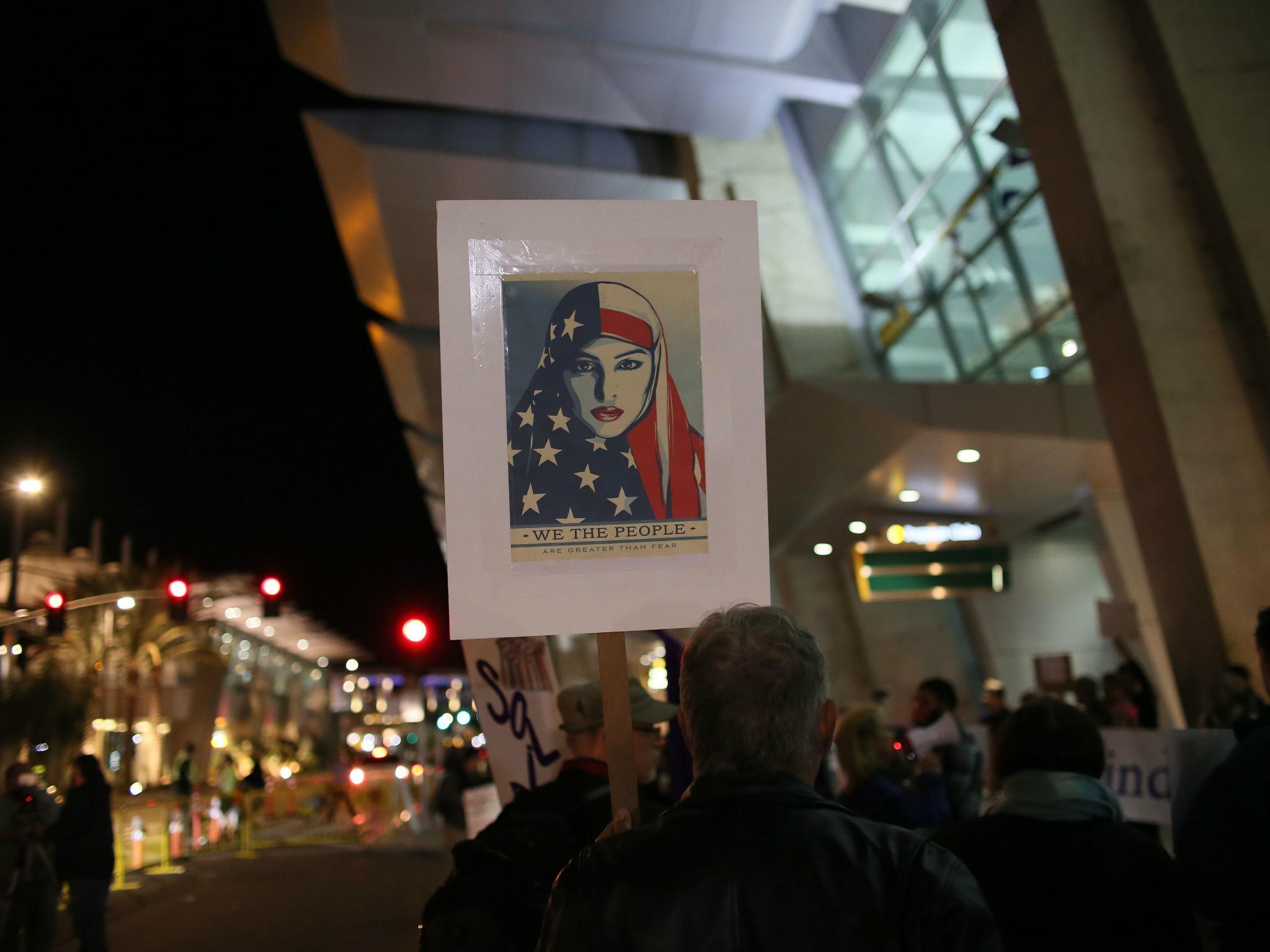Muslim travel ban: US Supreme Court to rule on Donald Trump's controversial policy
Campaign promise hangs in balance after President suffers defeats in lower courts

The US Supreme Court is set to make a ruling on Donald Trump's controversial travel ban on the last day of its current term.
The executive order had put a halt to all travellers from six Muslim-majority countries – Syria, Libya, Iran, Somalia, Sudan, and Yemen – entering the US for 90 days.
The Trump administration said the ban was in the best interests of national security. Mr Trump repeatedly said on the campaign trail: "A complete shutdown of Muslims ... Until country's representatives can figure out what the hell is going on."
The White House said vetting processes for visas and those attempting to enter as refugees had to be reviewed and strengthened in those 90 days.
The original travel ban included Iraq also. An exception was made after it was pointed out to the administration that several interpreters and others who aided US troops during the war would have been barred from entering the US.
The initial order was met with thousands of protestors at airports across the country with makeshift legal aid clinics set up in waiting areas for arriving travellers. Two lower courts put a halt to the revised 6 March order.
The Fourth Circuit Court of Appeals in Richmond, Virginia, ruled the order was unconstitutional because it imposed religious discrimination.
The Ninth Circuit Court of Appeals, the largest circuit in the country, ruled that the immigration ban required a more substantive national security reason than the White House provided. They cited Mr Trump's favoured medium of communication, Twitter, in their argument.
White House Press Secretary Sean Spicer has maintained his message from January 2017: “It's not a Muslim ban. It's not a travel ban ... It's a vetting system to keep America safe.”
However, on 5 June Mr Trump tweeted that it was in fact "a travel ban".
A recent study by Investigative Fund at the Nation Institute, a nonprofit media centre, and news outlet Reveal from the Center for Investigative Reporting found that only three of the 201 domestic terror incidents that occurred between 2008 and 2016 "involved a perpetrator or alleged perpetrator" that came from one of the six travel ban countries.
The Supreme Court is expected to decide whether to hear the appeal of the lower courts and fulfil the White House's request that the ban be implemented while litigation is ongoing.
If the Court rules to allow the ban to proceed, implementation would begin within 72 hours. Though the order does not apply to citizens of the six countries already in the US or those holding valid visas when the ban goes into effect, many worry people will be caught in the legal confusion caused in January when the order was first implemented.
Should the full bench of nine judges rule to keep the ban on pause, the White House could still review the order and issue another revised one.
Even if the court schedules arguments, 26 June is the last day of the current term for the court. Any oral arguments will be scheduled after the 90-day ban and review period has already taken place.
The travel ban could be rejected all together as well. However, legal experts have said this is unlikely given the political leanings of each of the Justices.
Another issue at play on the last day before the summer recess is the rumoured retirement of Justice Robert Kennedy, who is turning 81 soon. Though Mr Kennedy was appointed by Republican President Ronald Reagan, he has proven to be more left-leaning on social issues such as reproductive rights, gay marriage, and limiting the use of the death penalty.
His retirement would mean Mr Trump would have an opportunity to appoint another conservative Justice in addition to Neil Gorsuch, calling into question landmark rulings such as Roe v. Wade on the right to abortions.
Ruth Bader Ginsburg, 84, has indicated no signs of stepping down from her lifetime appointment on the bench.
Join our commenting forum
Join thought-provoking conversations, follow other Independent readers and see their replies
Comments